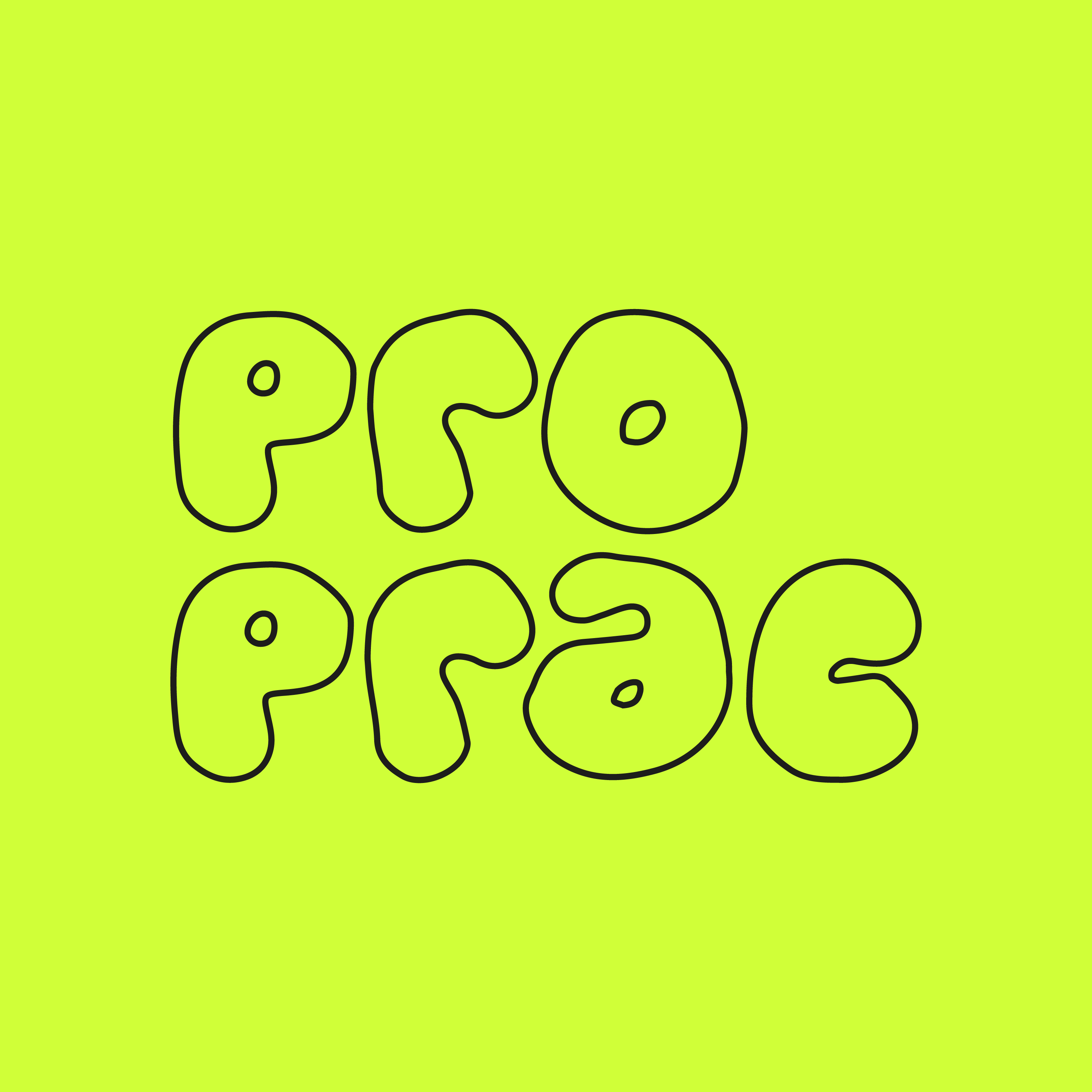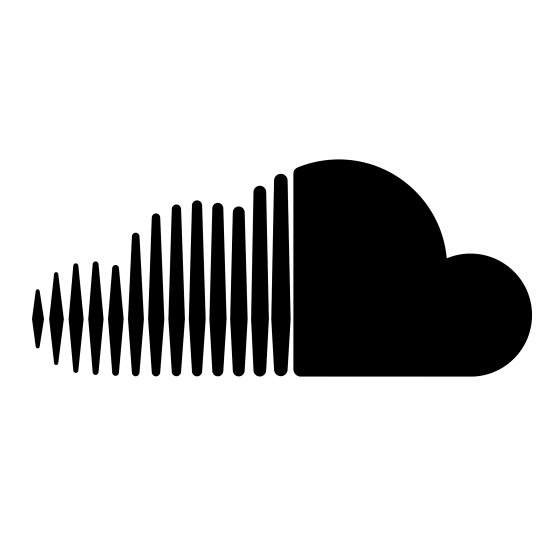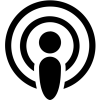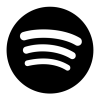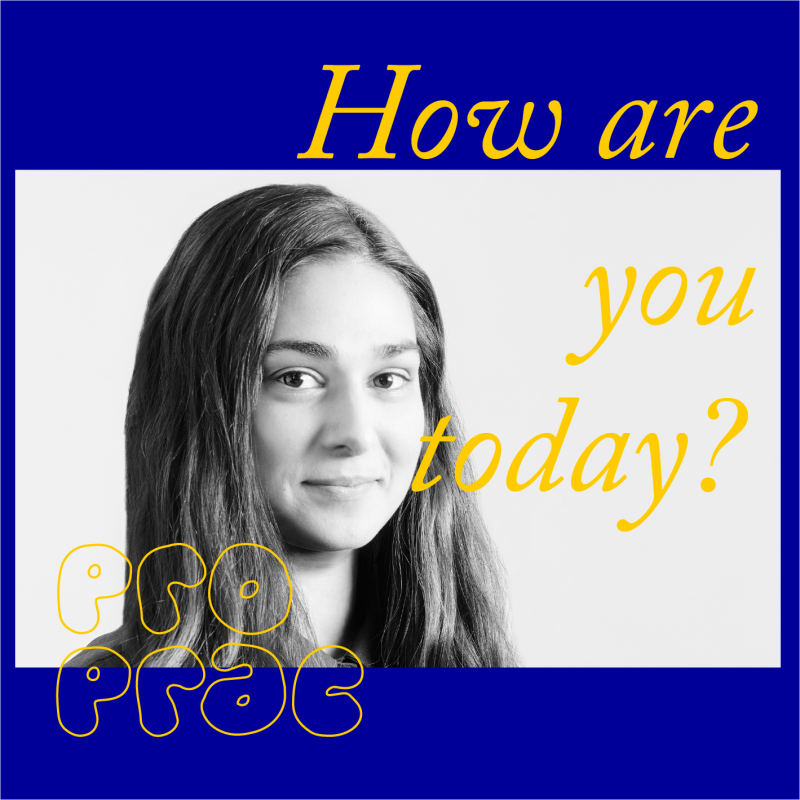
Lara Chamas
How Are You Today – Episode 8
Resources
Instagram handle @lara_chamas_artist
Transcript
Kiera Brew Kurec 0:02
Hi, and Welcome to Pro Prac. I’m Kiera Brew Kurec.
Nick Breedon 0:05
And I’m Nick Breedon. You’re listening to How Are You Today? a spin off series where we call an artist and check in with how Coronavirus is affecting them, and ask them to share their worries and their hopes for the future.
Lara Chamas 0:22
Hello,
Kiera Brew Kurec 0:23
Hi, Lara.
Lara Chamas 0:24
Hey,
Kiera Brew Kurec 0:25
hey,
how are you today?
Lara Chamas 0:28
Not too bad, but I’m so very tired. How are you guys today?
Kiera Brew Kurec 0:34
Doing okay, but it is definitely that time of the afternoon. Thanks for joining us, I was wondering if you could share if you have been affected by COVID-19, either personally, professionally, in your practice, or in any other ways?
Lara Chamas 0:52
Yeah, absolutely. Um, so yes, I definitely have been affected personally. And professionally, in my practice, even academically, in my studies, I’ve had to take leave to do my masters at the moment. And I’ve had to take leave, because it’s become reasonably impossible for me to progress at this point, which is easing up now. Which is, which is good. Yeah, so I lost access to my studio. And it just became, I’ve had, like, pretty much all my shows this year delayed, I think, thankfully, none cancelled, which is really great. Because I know a lot of people that have had shows cancelled. So really, my practice has been put on hold and in a sort of selfish way, my own, I guess, like outlet for, you know, my emotions and interest and stuff has also been put on hold. And that’s had an effect on me personally. And as well as a lot of responsibility. Just in my family dynamic, with their being a pandemic, and with the, you know, not having my studies or my practice to sort of continue with I’m, I’m the one who’s free now. And so I’ve had a huge increase in responsibilities in terms of, like, taking care of my family things like.
Kiera Brew Kurec 2:27
Yeah I think there’s that kind of adjusting to family dynamics, but also like, just how much pressure is being put on individuals to provide care, in all different ways for their family that might not be seen, is really kind of apparent at the moment and how, how much that is, you know, a part of our lives and maybe in the arts, it doesn’t get seen or like it’s, you know, you show up to galleries, and you kind of expected to have just been in your studio or, you know, making work, but I feel like, there’s now kind of more of a visibility of our other obligations and other other aspects of our lives being being more visible, I guess.
Lara Chamas 3:18
Yeah, absolutely.
Kiera Brew Kurec 3:23
You’ve just mentioned that everything’s kind of being put on hold, but have you kind of taken up any other projects? Not not just artistically, but in any other kind of aspects? While, we’ve been in isolation?
Lara Chamas 3:36
No, like, essentially, just my, my life’s at the moment, pretty much: I wake up, and I cook and I clean, and I take care of everyone else. And I might, you know, play some games on my phone and watch Netflix and stuff. But I’ve been unable, I suppose mentally and also, of course, because of responsibilities have been I’ve been able to, like, take up anything really. Yeah, and I sort of feel a bit I’d feel a bit strange taking up a project or working on something that isn’t my practice, just because like, Yeah, because I’m unable to do so it sort of feels like I’m cheating on it or something. Yeah (Laughter).
Nick Breedon 4:27
Do you have a kind of time period that you thinking when you may be able to return to study or is it really up in the air at the moment?
Lara Chamas 4:37
Um, thankfully, it’s looking like within the next couple of weeks or a month that I can sort of start using my studio again, and, like resume, but I feel like it’s gonna take, there’ll be, again, an adjustment period of getting back into the swing of things.
Unknown Speaker 4:53
Has the institution been fairly supportive do you think in transitioning, you know, to what’s been happening with all the students and you as well?
Lara Chamas 5:03
I mean, yes and no. So the institution that I’m in which I’ve absolutely no problem naming I go to Monash. I know that there are other universities not all of them, of course, but there are other universities that sort of extended everybody’s masters, or PhD like post grads, they extended it and extended scholarships and financial support just automatically for like three months. And we were told we can take leave. Which is fine. And that’s what I did. But I’m taking leave meaning like, you’re not allowed to continue with study, which I mean, I’m unable to anyway. And also, you know, any scholarship support is also cut off. Which is particularly bad during these times, of course, when like, freelance gigs I might have had just on really, they don’t exist anymore. They’ve been like, I get emails every week, like about stuff, but but like, in terms of, like, on action, like on the floor, actual ground sort of change of like the campus was shut down. And like, so that was pretty much not like, it’s not that there was no support, but there was no, there was nothing useful for me personally, that they were offering,
Nick Breedon 6:35
I mean, yeah, you mentioned that there’s been a lot of changes to obviously not going to uni, day to day, but has there been any other kind of changes to your routine? While you’ve been in isolation?
Lara Chamas 6:46
Yeah. So, but But then again, taking away going to studio, it’s not that different. I already sort of, you know, was a bit of a shut in anyway. But even so, even just I sort of realized that, though, I might be, you know, quite introverted, and we need to take people in doses. It’s insane the amount of socialization at least subconsciously, I was getting by just going on the train, or something like that, like just being around people. Yeah.
Kiera Brew Kurec 7:26
Yeah, I’ve been thinking about that a lot as well, because I can be incredibly introverted and go for weeks without kind of socializing with friends. But I get that socialization from being on a train or going to the supermarket or, you know, those random bumping into people on your way somewhere, that fulfils my kind of level, my need for socialization and having that removed. It’s kind of like a weird starvation that I hadn’t experienced before. And realize that like, maybe I need to be a little bit more proactive in like, where I do seek socialization from and maybe I can be a little bit more intentional about like, spending that time in the future with a friend rather than kind of…..
Nick Breedon 8:12
Somebody eating a bag of chips on the train. (Laughter) Or sniffing for 45 minutes. Nobody wants that?
Lara Chamas 8:22
Absolutely. I’ve been yeah oh wow, I need to re think the interaction I have with people have also on that note had a lot of existentialism about being an artist.
Nick Breedon 8:34
Yeah, we’ve had a, we’ve had a few guests that have shared that experience, and yes, certainly, we’ve talked about it as well, this has been a really intense period of reflection on like, what art is for and what it does, what what is the purpose? And what does it provide for people? And for us, as well?
Lara Chamas 8:52
Um, yeah, this time is, I suppose really made me question a lot and sort of put into perspective, what is needed? And I know, like, as in an in the world, but I mean, obviously, we’re, you know, what not, like, we’re in a fairly, like, we’re a first world society. And like, you know, we have that room for you know, entertainment and arts and the things that are, you know, not needed, quote, unquote. But I suppose as a, I’m a I live with chronic health conditions, and I’m immunocompromised. And so, the past week, actually, I’ve been sort of taking the train a little bit to get to appointments because my doctors finally will start to see me in real life and things like that. And it’s, I don’t know, it’s sort of really put into perspective like also, there this affordance that now we are giving to people in health compromised situations or, or there are some at least things put in place to help these to those people or even people that are on Centrelink. Now there’s an actual liveable wage, you know. And it’s, it’s, it’s so upsetting that this was always possible, but it took this horrible event to trigger all of that. And I feel like when this goes back, I don’t want, I don’t want the world to stay the same. I want it to change. And I don’t know if it will, and I don’t know, if I will feel the same. And I do have, interestingly, of a bit of anger as being like, I don’t know, like, oh, now you guys care.
Nick Breedon 10:52
It’s interesting to see that with what’s happened, it took basically middle class, white Australians to be in danger for the government to do anything.
Lara Chamas 11:04
I mean, look, you’re absolutely right.
Nick Breedon 11:07
It was with normal, good, hard working Australian citizens, quote, unquote, you know, to, to be in a place where they might, you know, lose everything that they have for the government to just immediately throw down everything and and run to their aid, whereas everybody else can be very easily forgotten.
Kiera Brew Kurec 11:28
I think anger is a really valid emotion and expression to have around this, because there’s a lot of people that have not been seen for a very long time. And, you know, never been seen and never been brought into the, let alone, allowed to have a part in the conversation about how we live as a society. And I think people can be angry and should be angry. And, yeah, I think what you just said, as well, I’m really kind of scared as we kind of re-emerge that things are going to go back to, quote, unquote, normal, and I don’t want it to go back to how it was, and I don’t, because it didn’t serve a lot of people.
Lara Chamas 12:13
Exactly. It wasn’t working before, and this pandemic has made us realize that it wasn’t actually working. So we need to change that I just, I do not trust this government to necessarily do that. I mean, we can try, like, on a grassroots level. And, you know, that’s sort of already something that I like, exploring my practice, as, you know, as, as best I can. But I mean, but yeah, like, I don’t know, if there needs to be systemic change, like I’m quiet, sort of hopeless in the, in the, in the way that I’m like, Well, I can do what I can and, you know, artists can do what they can, but like, how much change? Is that actually going to make? So I’m not very hopeful for the future, to be honest.
Nick Breedon 13:03
We, we will ask you anyway, because we want to give everybody the opportunity to think about what they might be grateful for, or hopeful, for this time. Is there anything that you would like to share that you’re feeling, you know, positive about?
Lara Chamas 13:19
Okay, so two things. So first of all, that the visibility that all the small and you know, a bit late, the visibility that, you know, working class, people of colour, people that are immunocompromised or disabled, like that, the slight sort of realization that, like, hang on, this wasn’t working for them. I feel like that is that is like, slowly, that is definitely being noticed, at least. So that’s a positive. And I think also, maybe not all art institutions, but a lot of art institutions, I feel have been quite generous, when, when they’re able to. I know, like, so many lost funding, which like, was heart-breaking. But like, a few of the institutions I have shows with they, they were like, we’re happy to honour your fee, like now, if you need it, don’t worry, your shows not going to be cancelled. It’ll just be delayed. And like, you know, we’re going to support you through this kind of thing. And so that that’s been really positive, and I suppose maybe the conversation around artist just having like a liveable wage, and I don’t know, like, like steady employment and stuff, at least like because so many casual arts artworkers have also lost their jobs. And so it’s sad that it had to take that tragedy, but at least it’s like, maybe in the forefront of so many people’s minds because now they’re affected. And so, like, sadly, sometimes it takes like a person personally being affected to sort of realize the big picture. It’s sort of exposed a little bit those, the classism in the arts, which I don’t think is spoken about anywhere near enough
Kiera Brew Kurec 15:09
Yeah
Nick Breedon 15:10
Yeah absolutely
Lara Chamas 15:11
Yeah. But it’s it’s almost levelled everybody off, which is horrible. But, exactly, the conversation is starting. And yeah, there really hasn’t been a great outreach of support like with the um quick response grants and things like that.
Kiera Brew Kurec 15:24
Yeah, yeah. And even I think the Turner prize announced this week in the UK that they were going to divide the prize. And I think that that’s a turning of institutions recognizing that artists don’t want to be in competition with each other. And they don’t want to have to be like fighting for the glory. They like want to actually just live and make their work and like, be a community.
Lara Chamas 15:49
Yeah, absolutely. And just sort of just quickly, and I’ve got to, you know, plug my agenda, of course. But, um, like, I feel like people of colour artists are pitted against each other, like, they can only be, like, artists in general already pitted against each other. But then it’s like, okay, there can only be one, like one Arab Muslim female artists, you know, and that’s okay, that’s my pigeonhole and I have to go to fight for that, but I don’t want to, I want to uplift my fellow people of colour. Yeah, um, I don’t know. Hopefully, that can change. But you know, maybe maybe that’s maybe that’s a really big stride to take?
Kiera Brew Kurec 16:27
Lara do you have a website, or Instagram or both that you would like to share for our audience to follow you if they don’t already?
Lara Chamas 16:36
Sure. I do have an Instagram. So it’s just my name. @lara_chamas_artist with like, underscores in between. Yeah, follow me if you if you want.
Kiera Brew Kurec 16:48
Well, thank you so much for taking the time to speak with us today and share with us what’s been going on in your life.
Lara Chamas 16:55
Thanks so much for having me.
Kiera Brew Kurec 16:56
All right, thanks, bye.
Nick Breedon 16:59
We respectfully acknowledge the traditional owners of the land on which we have recorded and pay respect to elders past, present and emerging and the elders of the land on which this podcast reaches you. today. We extend that respect to all First Nations people listening and acknowledge that sovereignty has never been ceded.
Kiera Brew Kurec 17:16
How Are You Today has been generously supported by the city of Melbourne’s quick response grants, follow us at @propracpodcast on Instagram or email us at propracpod@gmail.com. If you haven’t already, please subscribe on whatever you listen to podcast on.
Nick Breedon 17:31
Please stay in touch. We’d love to hear what you’re up to as well.

Pro Prac acknowledges City of Melbourne’s generous contribution to How Are You Today? through their Quick Response grants program
